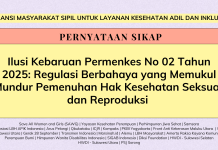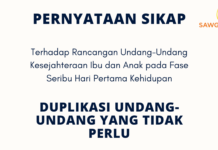Even in a supportive context, getting comfortable with our bodies as they develop sexually can be a challenge. This challenge is multiplied when society makes sex and all things relating to It taboo. Sara Barnes, Intern at Samsara shares her experience

My mother was amazing. I don’t remember when I first learnt what sex was because I don’t remember ever not knowing, there was never an ‘oh the birds and bees, and, well storks or…’ awkward conversation because from the first my mother approached sex and reproduction as something that happened. It helped that I had a keen interest in the natural world, watched hundreds of animal documentaries and was raised in a home that believed people were just another kind of animal. Years before I reached puberty my mother gave me a book called “How Your Body Works”, sometimes we read it together, sometimes she left me to flick through it alone. I knew I would start menstruating years before I did, I looked forward to it with a mixture of apprehension and excitement. I knew what it was likely to look and feel like and what pads and tampons were. I knew what sex was, and how to protect myself if I partook in it. I didn’t realise how lucky I was to have this knowledge until one of my friends confided in me that she was dying, she’d been bleeding from between her legs for three days and didn’t know what to do or who to tell. We were 12, 13 years later she has still never spoken to her mother about sex. Another friend’s mother gave her a packet of contraceptive pills when she turned 13 and told her to take one a day for the rest of her life – no further information and certainly no mention of sex, pregnancy or how babies were made. My peer group thought her mother was incredibly cool for doing this.
As wonderful as my mother was, I’m not writing this to tell you my experience of my body was easy. In fact despite having such an open and easy to talk to mentor and all of the knowledge ‘necessary’ at my fingertips, my experience of puberty and sexuality was incredibly hard. The societal conditioning around sex, the way my friends, my teachers and the media dealt with the female body, contraception, and sexuality sex combined with my adolescent uncertainty and lack of confidence meant that even though my family life was supportive, open-minded, knowledgeable and free from religious ideas of sin, I didn’t become comfortable with my body or sexuality until my mid-twenties. In highschool I, raised in an open-minded atheist household, still thought sex was a dirty thing, that periods were a dirty thing women had to suffer through and should be hidden, that sex before marriage made you a slut, and that any boys talking to me were mocking me because I couldn’t be sexy. I was skinny, freckly and had braces and short hair. I look back through my box of memories and the photos show a pretty blond haired blue eyed girl with and open smile, there are chocolate wrappers and letters from ‘friends’ that I dismissed – I don’t even recall getting most of them. I don’t know where my conservative thoughts came from, I didn’t go to church and not all of my friends were as prudish – though those of them who were sexually active saw sex invariably as an act of rebellion. We didn’t talk about sex or even menstruation unless it was in a hush behind a hand blushing furiously and quickly moving on.
But I’m not writing this to tell you how awfully my impressionable adolescent-self wanted to fit into the conservative, religious society I grew up in. Rather I want to impress upon you that becoming comfortable with one’s body, with sexuality, hormones, sex, contraception and the like is not simple. Even in a context where sex education is provided in schools and contraception is accepted and provided for free by the government in schools and clinics, the entrenched societal norms and personal experiences of adolescence can make growing up hard and even dangerous.
I went onto the contraceptive pill at age 15. My periods were uncharacteristically painful and my mother took me took the gynae. He was male, old and scary. My mother was supportive, but I was so overwhelmed by the process I didn’t do any of my own research, I didn’t read the pamphlets on possible side effects. I trusted in the old, male, medical figure of authority and took my daily pill. The periods were less painful. For the next 5 years I suffered with intensive feelings of sadness, I put this down to not being cool enough, good enough, pretty enough or, when my mood wasn’t so fatalistic, not trying hard enough.
When I was 20 I sought counselling. The circumstances surrounding this are another story. Here for the first time these symptoms were recognised – depression. The very word to me symbolised weakness. My psychologist and I, after much trial and error, discovered that this was mostly a hormonal response to the contraceptive pill, exacerbated by the traumatic experience that had originally led me to seek counselling. I went off the pill, went onto anti-depressants, went off of the anti-depressants and began to recover slowly. However, now the intensely painful periods returned.
Slightly more comfortable in my own body I looked for and found a friendly, open-minded female gynae, she charged an arm and a leg but I was earning now. And I had learned that my body and mind were worth it. She discovered I had endometriosis. After much consultation we decided to try an IUD. Although this took 6 months to settle, during which I read and researched and watched my body, the freedom from pain, depression and periods hat it has given me is unbelievable. This freedom finally gave me the space to explore and grow completely comfortable with my body my sexuality and my beliefs surrounding them.
I want every girl to experience the freedom of control over her own body. The growing process will be slightly different for everyone and, as I’ve tried to make clear by telling my own story, even in almost ideal circumstances this is not always easy. But, it is damn near impossible in societies where sexual education is not included in schools, where contraception is seen as something for married women only, periods are considered dirty and the result of woman’s original sin, and where wearing a mini-skirt is asking for rape. So how do we change this? How do we remove these and other related obstacles from our families, communities, schools and media? How can we give every girl a chance to become her own woman. I’m still not sure but I think the first step is to begin to talk openly – to talk often and unashamedly about anything and everything relating to our bodies and sex lives.









